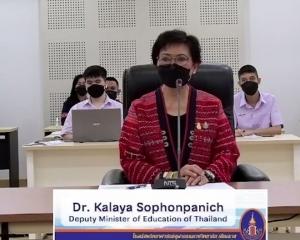Educational reform agendas are often political and built largely on myth and rhetoric rather than hard evidence, the University of Otago's Dr Darrell Latham writes.
My desktop BS detector alarm went off recently and indicated once again we are entering the beginning of the silly season with the resumption of Parliament.
No sooner have we exited the 2011 election campaign, the John boy's teapot tapes saga, the Prime Minister's "Claytons" electioneering radio talkback special, only to be confronted with Act New Zealand's mythical charter schools reform agenda policy.
The charter schools debate replaces national standards as the thorn in the side of New Zealand's children and teachers; well, actually, just another thorn in the other side.
What bothers me is the absolute irony of the situation where the Government failed to allow a trial of national standards to justify their use, even in the face of damming research evidence to the contrary.
Yet, here we are again, this time with government support for the short-term shotgun-manipulated trialling of a new charter school system based on a controversial model. What is of concern is not the generation of new policy but, rather, the myth that often surrounds educational reform agendas.
As a researcher with an interest in the politics of education, I can think of no good reason why a parent or teacher worth their salt would not want openly to debate and take on board changes that have the potential to change New Zealand's education system. But, first, please show us the hard evidence.
The point at issue here is that educational reform agendas are often political and built largely on myth and rhetoric rather than hard evidence. Before educational initiatives are implemented, solid research evidence should support their introduction. After all is said and done, it is our nation's children, New Zealand's future, that we are talking about here, not guinea pigs.
A case in point is the recent introduction of National Standards where international research evidence did not support their introduction. Yet, against mountains of solid peer-reviewed research evidence to the contrary and strong public reaction, they were bulldozed in.
Here we go again. There is little significant supportive evidence for the introduction of charter schools and New Zealand's media have recently been drawing this to their readers' attention.
Such headlines as "Charters for success or division"; "No mandate for charter schools"; "The great education experiment" and "Big fish hooks in educational vision" seem to sum up the public's perception of charter schools very well.
However, there seems to have been no change to policy.
My point here is not to debate the pros and cons of charter schools. Needless to say, in my opinion, the negatives outweigh the positives based on the research evidence. Rather, I aim to inform readers of the myths surrounding the introduction of such policy.
A commonly held myth is that non-educators with management skills and business experience should be able to do a better job than educators and clean up the mess that politicians believe educators have made.
Such appointments are often politically manipulated, designed to shut down debate and to reinforce government policy related to the reform. An example is the recent indication that Act wants its former president Catherine Issac to chair the trial of charter schools, an appointment described by Greens education spokesperson Catherine Delahunty as "disturbing".
Ms Delahunty said "the trial now looks like a joke. It shows that this is nothing to do with education, it's to do with the Government's agenda to turn the education system into a business opportunity." Delahunty went on to explain there had been no public discussion about charter schools and the appointment of someone not from the education sector but entirely from the ideology of privatisation was about jobs for the Government's mates.
Think about it. Why in the world would you put an amateur rather than an expert in charge of such an important trial?
Balance in all things is important and of course there is a place for people from businesses in education and vice versa. Businesses support schools through sponsorship and they are an integral part of the educational community.
However, that does not mean schools should be run like businesses or corporate high flyers should have first dibs on reforming the public school education system.
In short, the politics and dynamics of the school yard are totally different from those of the corporate world. In schools it is not just about profit or losses and in schools you simply can't cut your losses because, unless it has escaped the bean-counters, schools and teachers deal with real children from a range of socio-economic backgrounds, with differing abilities and needs.
The assumption that experience in the business world by itself qualifies one to lead such a trial and that the rigours of the private sector will trump academic research or those beavering away in the public sector is a misnomer, a myth perpetuated by politicians with an agenda.
Our teachers and schools must continue to develop effectively.
However, development must be based on solid research evidence. Please can we ensure that those leading the reform charge are not simply corporates adept at manipulating the power of the myth and who know the price of everything and the value of nothing.
• Dr Darrell Latham is a senior lecturer at the University of Otago College of Education. He works in the Centre for Educational Leadership and Administration and his research interests include the politics of education.











